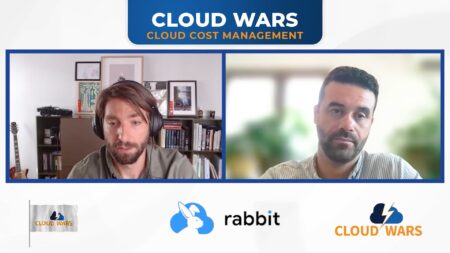A new research study reveals that a whopping 94% of IT decision-makers who are running Oracle cloud applications have not yet optimized the deployments of those apps.
And those IT decision-makers (ITDMs) are facing two primary challenges in pursuing the optimization of their Oracle cloud apps, the research revealed:
- they want to automate diagnostics and business-intelligence reporting; and
- they are struggling with licensing and compliance as they try to reach that optimized state.
Those and other key trends within the Oracle application landscape have been explored and analyzed in a recent research study conducted by Apps Associates, the recognized industry leader for migrating and managing Oracle-to-cloud.
Designed to help CIOs and other IT decision-makers map out the best ways to maximize the ROI of their cloud-computing initiatives, the study surveyed more than 300 IT leaders from companies using Oracle applications and having annual revenue between $100 million and $5 billion.
With only 6% of Oracle cloud apps now operating in that ideal state, CIOs and other IT leaders are facing considerable pressure to lower the ROI for those cloud apps and related services and to generate a significantly lower TCO, Apps Associates found.
That situation has to change quickly because in today’s fast-paced business environment, CEOs are insisting that their CIOs deliver on the following:
- don’t allow “cloud sprawl” to mirror the runaway-IT environments of the past;
- make business-intelligence capabilities more accessible across the company to enable better decisions;
- transform the IT org from an old-fashioned “back office” cost center into a modern “front office” hub of insights, innovation and growth; and
- show tangible evidence of the ROI the company’s gaining from its investments in Oracle cloud apps.
In today’s data-driven business world, it’s clearly a problem when almost half of the survey respondents (44%) said that creating insightful reports from business-intelligence and analytics data remains a challenge. Companies that aren’t able to gain these indispensable business insights from their data will be unable to keep up with the rapidly escalating and frequently changing expectations of customers, and will gradually find it impossible to compete.
Clearly, the Oracle users surveyed are aware of this problem and are eager to find solutions. When the Apps Associates survey asked what innovations the CIOs and other IT leaders want to see from Oracle in the next year, the most popular answer from respondents was “more automation and analysis of real-time business intelligence and analytics.”
That’s perfectly consistent with the larger trend across all industries for data-driven insights and decisions.
The second big challenge cited by respondents centered on the related issues of licensing costs (cited by 41%) and licensing compliance (39%). And those concerns aren’t just philosophical: the Apps Associates study found that 80% believe they could be subject to an Oracle audit and feel unprepared or even unable to respond appropriately.
As a result, more and more businesses are turning to Managed Services Providers (MSPs) to help them handle those grueling Oracle audits as 82% of respondents said they’re looking for such partnerships.
One alternative that the right MSP can provide to those concerned CIOs is helping those businesses move their Oracle applications to the Amazon AWS public cloud.
Apps Associates, which conducted the study, is a leading MSP and has successfully helped businesses of various kinds migrate more than 160 Oracle workloads to the AWS public cloud. The result: lower cost and less anxiety and uncertainty over a potential audit.
For example, RISO, a global manufacturer of printers and digital copiers, was facing several IT challenges that it needed to overcome:
- legacy apps were running on outdated hardware and networks and therefore delivering unacceptably low performance;
- hardware-maintenance costs were unacceptably high;
- infrastructure sprawl had set in across multiple locations, making management and maintenance time-consuming, inefficient and expensive; and
- overhead costs were unacceptably high because RISO’s IT team had to manage multiple vendor relationships.
The solution: Apps Associates helped RISO migrate from their on-premises data center to the AWS public cloud. Within 6 months, all of those problems were addressed and solved.
Describing the experience with Apps Associates, RISO CFO and vice-president Alex Olshan said, “We knew that Apps Associates were Oracle experts, but they also proved to be cloud experts, enabling a complete infrastructure and application migration to the public cloud.”
Some details from the RISO move to the cloud in concert with Apps Associates: IT operational costs cut by 55%; backup infrastructure costs cut by 35%; reduction in IT vendors from 6 to 3; and RISO gained the ability to run legacy apps independent of hardware or operating systems via AWS.
The Apps Associates study revealed that as customer needs are changing, so too is the role of the modern MSP:
- Instead of being called in after a problem has occurred and is hurting the business, the best MSPs are now functioning as proactive and forward-looking business partners.
- MSPs have become strategic partners in helping businesses map out their journeys to the cloud to deliver not only cost savings but also new and better business processes and shorter time to value on IT investments.
- In today’s fast-paced digital economy, businesses can’t possibly keep up with all the changes happening in the tech space, and can benefit greatly from the expertise a well-established MSP can offer.
In fact, the study showed that 84% of respondents believe the right MSP can help deliver the following benefits:
- improve enterprise security;
- improve the morale and retention within the client’s IT team;
- help negotiate more-favorable contract terms with Oracle;
- help the IT team focus on key business initiatives instead of low-value and outdated IT busy-work; and
- simplify the highly challenging task of managing multicloud environments.
Conclusion
While the cloud has the potential to drive great business value for companies, the journey to that ideal state remains complex. And even after a migration to the cloud is complete, there’s still a great deal of expertise required—and the right MSP can be a high-value competitive differentiator.
To learn more, read the whole Apps Associates report here.
This article is brought to you by Apps Associates.








